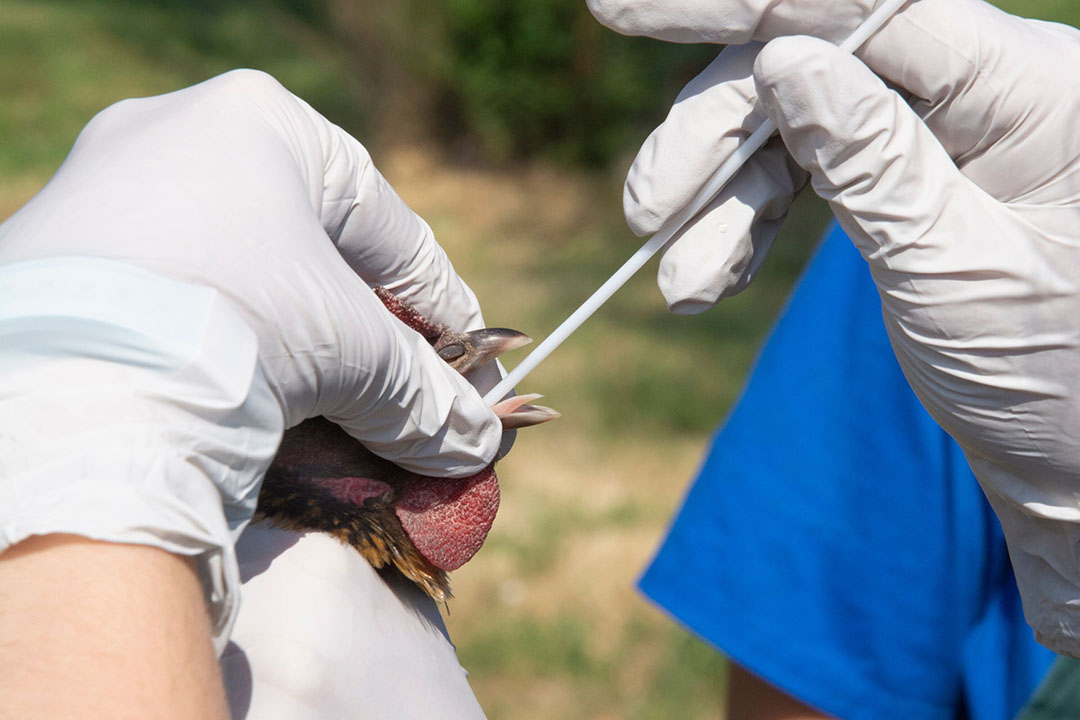June 3, 2025 | 06:43 GMT +7
June 3, 2025 | 06:43 GMT +7
Hotline: 0913.378.918
June 3, 2025 | 06:43 GMT +7
Hotline: 0913.378.918

It is estimated that avian influenza has resulted in the loss of 40 million birds. Photo: Canva
It is estimated that the avian flu outbreak has results in the loss of 40 million birds and is associated with economic costs ranging from US$2.5 billion to US$3 billion, according to a new investor report from FAIRR.
Mass culling of birds around the world is exacerbating global food price inflations and products, including eggs and chicken ready meals, but there are also material implications for protein producers and companies across the food supply chain with share pieces of some of the world’s largest producer companies being affected.
As an example, Tyson Foods has been struggling to meet consumer demand for poultry, resulting in an operating income loss of US$258 million, although this has been exacerbated by staffing issues in processing plants.
The study, ‘Industry Reinfected – Spotlight on the Economic and Public Health Impacts of Avian Flu’, has been produced with the University of Surrey and provides a summary for both policymakers and investors on the avian flue crisis. It looks at the rise in infections globally, the financial and economic implications for the food sector and the potential impact on trade and the global economy and implications.
Importantly, it also provides an analysis of emerging policy recommendations, highlighting the importance of taking a One Health approach to address the disease risk.
As part of this report, the analysis from the University of Surrey found that the stocking density in intensive commercial poultry farming in the UK may provide environmental conditions that facilitate viral transmission, affecting animal welfare and health, as well as causing economic impacts.
Conversely, free-range farming houses fewer chickens per square foot which allows for greater movement of individual birds.
By comparing 2 movement scenarios and 2 separate populations of birds, one with intensive conditions and the other in a free-range setting, the case study quantifies the impact that individual bird movement has on the transmission of avian flu. The study found that keeping birds in smaller flocks, where they have increased movement, results in fewer birds dying. This result could be particularly important for implementing disease control strategies, such as moving or quarantining healthy birds, and introducing vaccination intervention in a timely manner so that disease spread could be slowed.
The analysis by FAIR shows that, despite improvements in recent years, amongst the different proteins, the poultry sector has been the worst performer on average over the last 4 years (2019-2022). The poultry sector has consistently performed poorly when compared to the average performance of other protein companies in the areas of waste and pollution and food safety metrics.
The report includes some recommendations to investors:
(PW)

(VAN) Vikas Rambal has quietly built a $5 billion business empire in manufacturing, property and solar, and catapulted onto the Rich List.

(VAN) Available cropland now at less than five percent, according to latest geospatial assessment from FAO and UNOSAT.

(VAN) Alt Carbon has raised $12 million in a seed round as it plans to scale its carbon dioxide removal work in the South Asian nation.

(VAN) Attempts to bring down the price of the Japanese staple have had little effect amid a cost-of-living crisis.

(VAN) Fourth most important food crop in peril as Latin America and Caribbean suffer from slow-onset climate disaster.

(VAN) Shifting market dynamics and the noise around new legislation has propelled Trouw Nutrition’s research around early life nutrition in poultry. Today, it continues to be a key area of research.

(VAN) India is concerned about its food security and the livelihoods of its farmers if more US food imports are allowed.